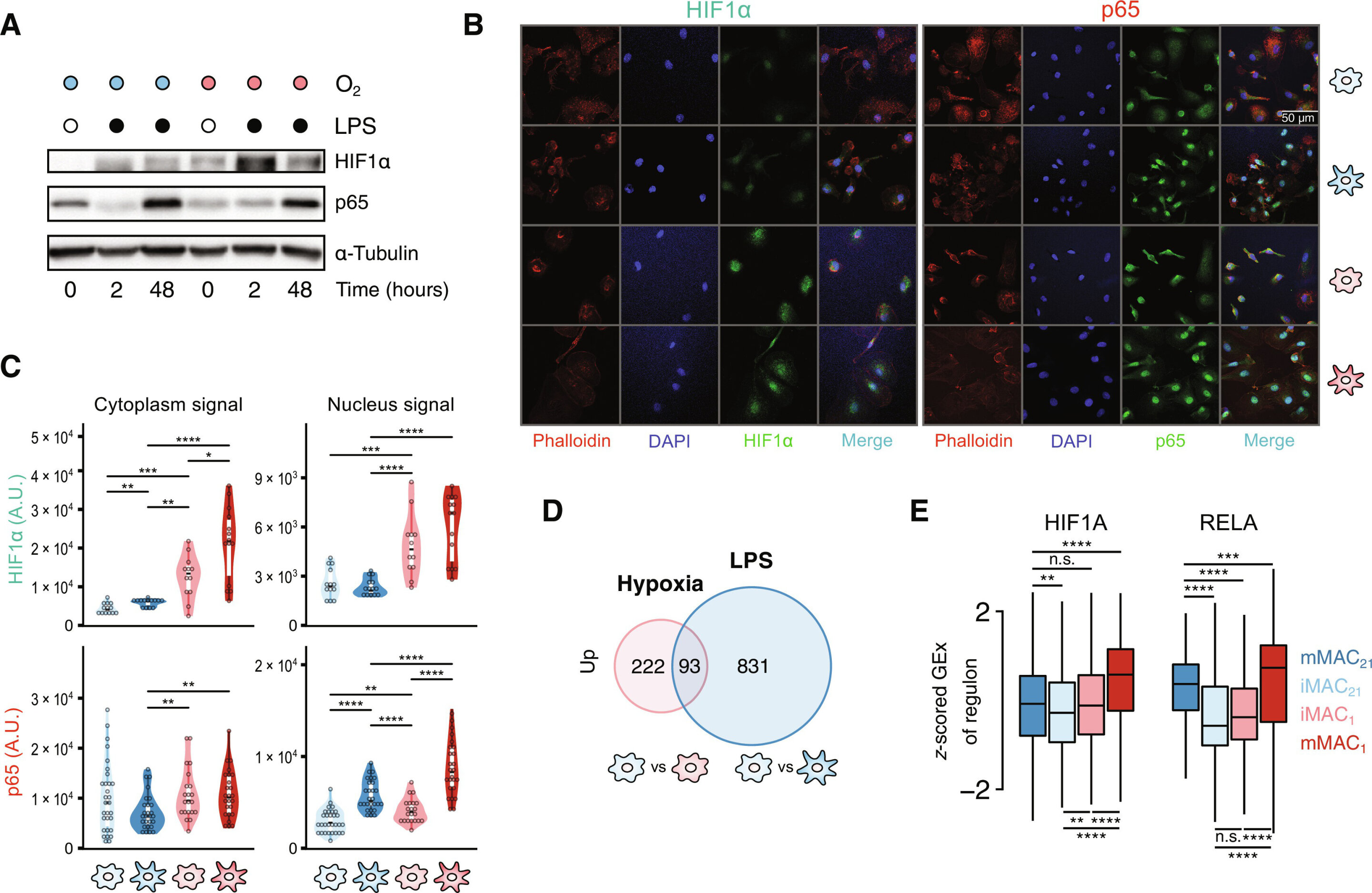In the complex landscape of cancer, tumors create their own microenvironment, often marked by low oxygen levels, a condition known as hypoxia. Hypoxia arises as tumors grow rapidly, outpacing their blood supply due to the lack of an efficient vascular system within the tumor. This oxygen-starved environment forces cancer cells and surrounding tissues to adapt in ways that typically promote tumor survival and growth.
This is also the case for the immune cells already in the tumor microenvironment, that are taught by cancer cells to tolerate the condition and even promote cancer growth by failing to comply with their main job. Therefore, hypoxia is generally associated with more aggressive cancers and poor patient outcomes, as it drives changes that make tumors more resistant to treatment.
This well-established paradigm is not absolute, however. Dr. Esteban Ballestar’s group at the Josep Carreras Institute has recently published a study in the journal Science Advances reporting the identification and characterization of an immune cell population that, under hypoxia, is more effective in their responses against cancer cells.
This surprising discovery expands our understanding of the effects of hypoxia in cancer. While hypoxia is known for contributing to cancer progression, this new study reveals that at least part of the body’s immune system can fight back.


